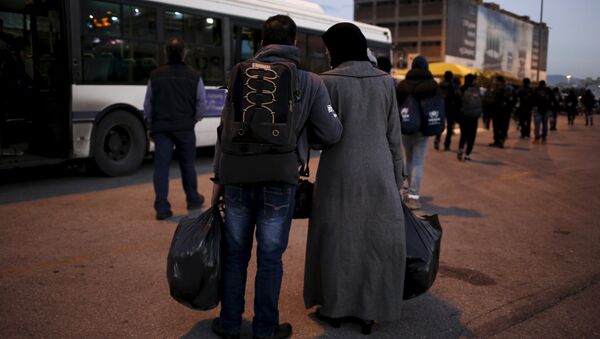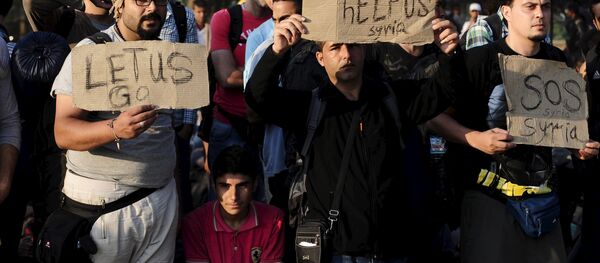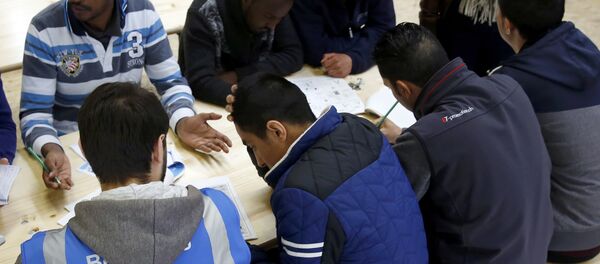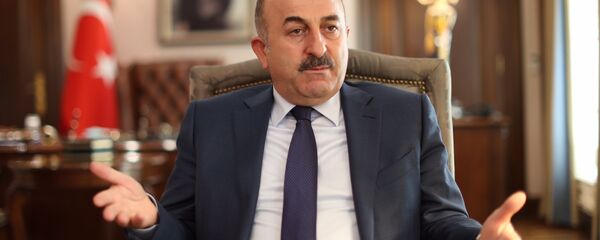Former shopkeeper Mohamed Kamel Haj Ali, a 52-year-old Syrian, lives in the small central Lithuanian town of Rukla, and is one of a group of refugees that has settled in smaller, poorer European Union countries like Estonia and Latvia.
"When we left from Turkey to Greece, our final goal was Germany or Holland," he said, "But the land route from Greece was already closed, so we had no choice but to enter the relocation program, which brought us here."
In early November, 34 Iraqi and Syrian refugees left Lithuania for Germany, seeking more sustainable conditions. Haj Ali explained, "The ones who left (for Germany) said they left Syria out of fear of death from bombs, but here they feared they would die from hunger…So they took the risk and left."
Refugees accepted by a European Union member nation are prohibited from claiming asylum or seeking work in other EU member states, according to the bloc’s regulations, leading some to destroy identification documents in hopes of claiming status in better-resourced nations.
The Latvian Red Cross estimates that over half of the 63 refugees settled in Latvia have left, and the EU is having difficulty implementing a refugee-sharing agreement signed in 2015 meant to spread roughly 160,000 refugees among 28 member states.
Countries under the agreement have mandatory quotas for refugees. Member states including Slovakia, Romania, the Czech Republic, and Hungary opposed the plan from the beginning, but were overruled.
Slovakian Prime Minister Robert Fico told reporters in December 2015 that the quotas were "nonsensical and technically impossible," according to Politico. Fico’s administration sued the European Union for imposing the plan.
Citing "security" concerns, Poland has refused in May to accept its quota of 7,000. Jaroslaw Kaczynski, head of Poland’s right-wing Law and Justice Party (PS) was quoted by The Independent saying, "Such a decision would abolish the sovereignty of EU member states – of course, the weaker ones," he said. "We don’t agree to that, we have to oppose that, because we are and we will be in charge in our own country.”
Currently only about 7,500 refugees have been resettled in the EU. Latvia’s minister of Interior Rihards Kozlovskis said, "We can't hold them here by force."
Resources are limited for refugees who have resettled in the Baltic states. Lithuania, for instance, pays families 450 euros a month for the first six months they are in the country. After six months that amount is cut in half.
The head of Latvia’s parliamentary Citizenship, Migration and Social Cohesion Committee, Ilmars Latkovskis, suggested that benefits could only be sustainable if they were raised "to a level which would be very unpleasant for our own population, which is not that well-off."





